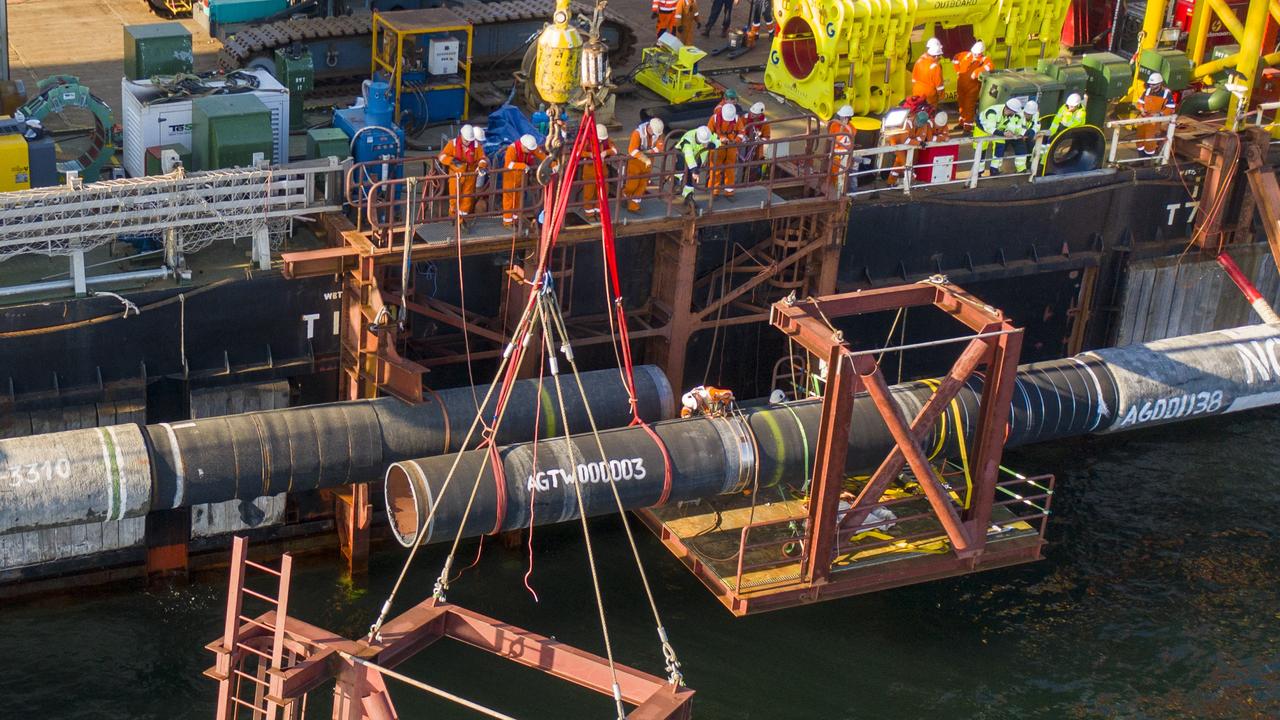The time has come from Monday: the Nord Stream gas pipeline from Russia to Germany will be closed. It’s another chess move that has so far driven up gas prices. Experts explain to NU.nl how the energy game works and what we need to do to change it, so that we can prevent a chaotic crisis during the new heating season.
The planned shutdown of the controversial Nord Stream pipeline will put an indefinite limit on direct supplies of natural gas from Russia to Germany, exacerbating gas scarcity across the European Union.
Officially, this is the annual maintenance of the pipeline. This should take about ten days, after which the gas transportation will resume.
This maintenance halt was previously offset by more gas being supplied via other pipelines, says George Zakman, an energy expert at the Bruegel European Economic Think Tank. So we didn’t notice it. The current situation is completely different, because gas supplies are used as a means of energy.
For example, gas supplies have been curtailed by Russia step by step for months. The intent is to cause scarcity within the European Union and raise energy prices even further.
Does Russia want to raise prices or destroy Europe?
For Russian President Vladimir Putin, who relies heavily on gas revenues from Europe, this is a balancing act, gas expert Gilles van den Bokel explains. Putin is now in the so-called nice place: hurts Europe, but still makes good money from it. We only get a quarter of the gas, but we pay for it ten times higher.”
From a financial point of view, it is beneficial for Russia to prolong this situation, and, according to Van den Bokel, this means reopening the pipeline after the official ten-day maintenance period, so that the Kremlin’s revenue remains at a maximum.
But Putin may be more concerned with his geopolitical goals: to hurt Europe the most and sow division. This is consistent with closing the gas tap for longer, and making it more difficult for Europe to fill gas storage facilities in time and to last into the winter, according to Van den Bockel, of the Hague Centre. For Strategic Studies (HCSS).
“Russia will analyze very carefully whether European panic signals are the time to break Europe apart, or whether limiting flows to Europe is the best strategy for expanding Russia’s influence in the politically critical period of winter,” adds Zakman.
The European Union must reverse the game of supply and demand
In Europe, for example, we always lag behind, says Kees van der Leon, director of energy consultancy Common Futures. To break the game, you have to take equal steps that affect the “law of supply and demand”. So get more gas from somewhere else. And if this does not work, especially reduce gas consumption.
“Measures such as supplying more LNG and lifting restrictions on coal-fired power plants have been initiated. Other measures have been announced, but are still in effect. For example, a savings tender for companies has been implemented and consultations have not yet begun and from for an enhanced commitment to saving energy.”
This commitment to save will be extended to large users, but only from 2023† The national energy saving target recently announced by the government is also he is Still on the drawing board.
15 per cent saving makes the EU independent
However, saving energy is the key to gaining complete independence from Russia. If the use of gas in the European Union only 15 percent Going down, we can move on to other sources, Zackman calculated last week. The challenge varies from country to country. For the Netherlands it is 16 percent, while in Germany, which has become relatively dependent on Russia, gas demand should be reduced by 29 percent.
This calls for mutual solidarity in the European Union, says Zackman. “The mostly unaffected countries must either produce more gas themselves or contribute to lower demand to free up the gas volumes needed in the most affected countries. The richer, more dependent countries must make significant financial contributions in return.”
Van der Leon says every saving counts, no matter what country it’s being saved in. “The European gas market is still functioning, and there is enough pipeline capacity to spread scarcity across the EU.”
‘Spread Groningen before chaos breaks out’
Van den Bokel believes that the current plans in Europe are insufficient. “If the gas tap stays off, I don’t see an ‘orderly shutdown’ as governments imagine, but rather a chaotic shutdown for financial reasons. Securing the supply becomes a matter of who has the deepest pockets.
In order to regain control and avoid chaos, Van den Beukel calls for, among other things, a list of companies and sectors we want to prevent from stopping at higher energy prices.
In addition, all three Dutch gas storage facilities must be filled to the maximum during the remainder of the summer, including Baby Bergermeer AnxietyPartially owned by Gazprom.
In order to allow filling of gas storage facilities while the Nord Stream pipeline is already closed, Van den Beukel argues in favor of not delaying the use of additional gas extraction in Groningen. “Additional production is needed at a low level, and we should start now rather than waiting for a moment of crisis next winter.”
The government should start communicating seriously
But as long as we don’t want to do that, there is only one alternative: save as much as possible, in the shortest possible time. To this end, the cabinet must now try to reach agreements with sectoral organizations, says van der Leon. “Shops are no longer leaving their doors permanently open, the restaurant industry is shutting down patio heaters, and large companies are closing half their office floors and changing conditioning From.”
“Compliance with such agreements is not legally enforceable, but the government must clearly state that it is necessary. It is time for the Cabinet to provide more urgency and less reassurance in communication. Then the procedures will also be better understood.”







